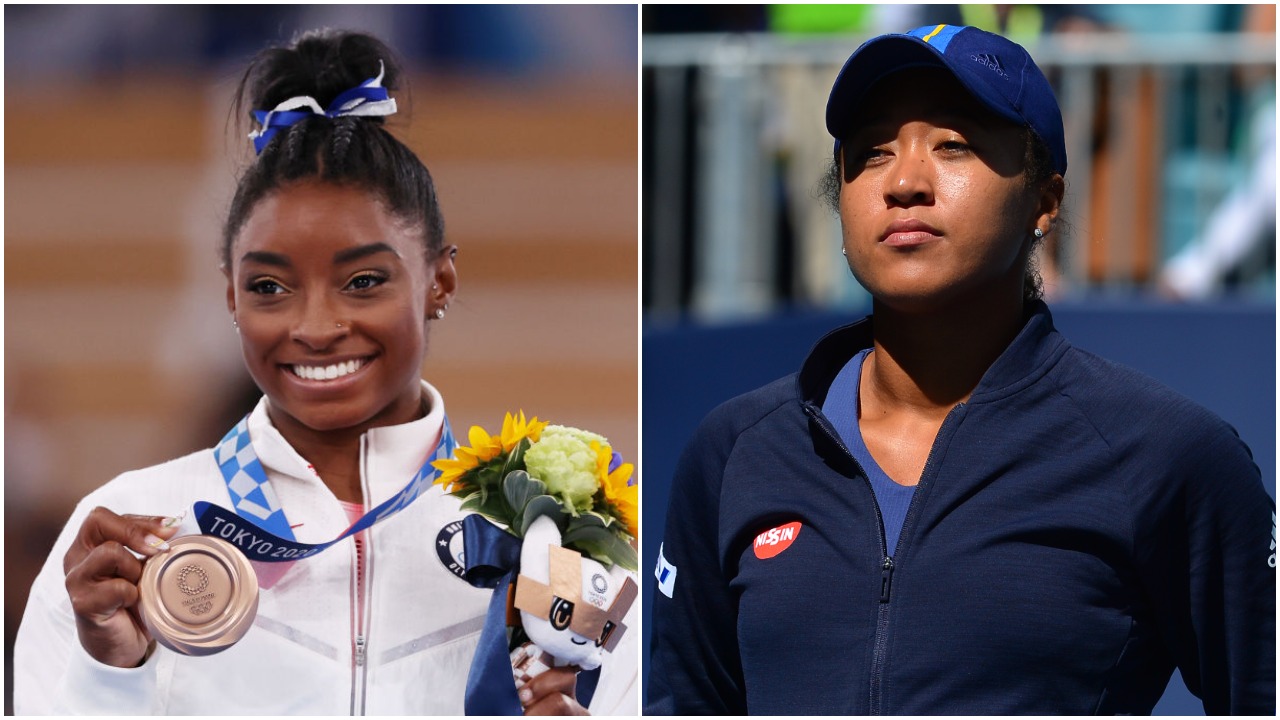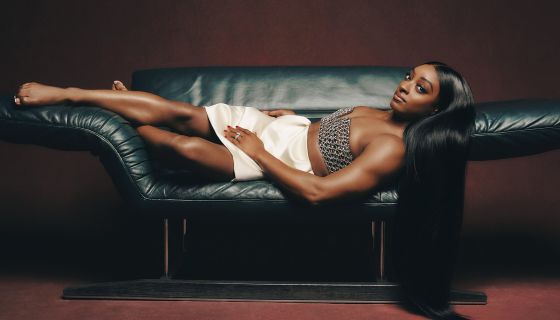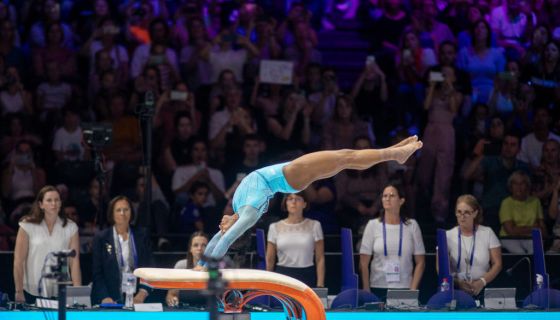
Source: Getty / Getty
When Simone Biles decided to bow out of the 2021 Tokyo Olympics to focus on her mental health, many stones were thrown her way. Candace Owens called her a coward. Piers Morgan said Biles let down her teammates, fans and her country. Contrary to what naysayers believe, Biles is a prime example that more Black women should be following. It’s no secret that mental health is stigmatized in the Black community. After Naomi Osaka courageously revealed her battle with depression and anxiety to the world, Biles felt more comfortable to put her own mental health first. Admitting to dealing with such a serious issue that is often dismissed by our community, far too much, is an act of bravery that folks like Owens and Morgan can’t begin to grasp.
From childhood, Black women are spoon-fed the “strong Black woman” schema. While it helps us acknowledge our resilience, it simultaneously hurts our mental health. The “strong Black woman schema” causes us to set these high expectations for ourselves, regarding the multiple roles we fulfill in our lives leaving little consideration for what we need in order to thrive and maintain. This leads to Black women experiencing depression, anxiety and even physical health issues like heart disease at higher rates than other races. From young girls, we are taught that our needs and our mental health have to be put on a back burner because we have to be “strong,” work hard, not dwell on things that actually hurt us and take care of everyone except ourselves. These irrational thoughts remain in our psyche and determine how we take care of ourselves as adults.
Historically, Black women have had to put their needs to the side to cater to everyone else. If Biles and Osaka would have continued to focus on medals, trophies and competing to keep their fans happy, they would have been adhering to the expectations of the public at their own expense. Having a public image to uphold, dealing with the pressure to win every competition, rigid schedules, being away from your family, social media trolls and being forced to do uncomfortable media interviews all take a significant toll on their mental health. They have to be the champions of their own health before they can be champions for the world.
As a therapist, I meet with many Black women who are exhausted from being emotionally independent for most of their lives. As children, they endured trauma, poverty and abuse and had no choice but to power through and learn to regulate their emotions by any means necessary. Speaking up about these experiences is seen as a sign of weakness. From a young age, Black boys and girls are taught to “be strong” and not tell anyone their business or the family’s. A reality for many Black mothers is also being the family’s breadwinner. In 2015, the Economic Policy Institute revealed that “more than two-thirds of all African American working mothers are single moms, making them the primary, if not sole, economic providers for their families” which is significantly higher than their white and Latina counterparts. Due to this reality, Black daughters often become caretakers for younger siblings at a young age when it isn’t developmentally appropriate. So between internalized stigma about mental health and taking care of their families most of their lives, there is little to no room to address their mental health.
What we can take away from Biles and Osaka is that no matter what, we need to make time to take care of ourselves. These myths and stigmas about psychotherapy are baseless; therefore, suffering in silence is unnecessary and harms us more than it helps us. As someone who works with people who fight these issues daily, I was proud to see them do what was best for them and not the world. They came forward and spoke up for themselves without an ounce of shame in sight, something many of us are still learning to do.
Women like Naomi Osaka and Simone Biles, who are normalizing and prioritizing mental health, help the rest of us redefine what it means to be a strong Black woman. Being strong means knowing when your load is too heavy and giving yourself a break. Strength is in listening to your body and mind so you can meet your own needs. It’s in knowing when to show up for yourself and not the world.












